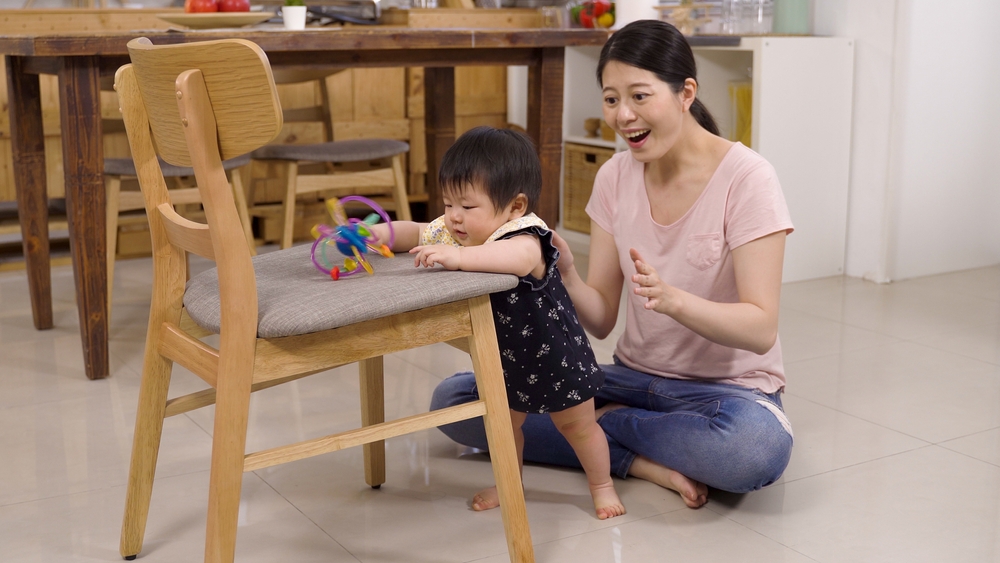Nov, Dec 2025 Reminder





Written by: American Association for Play Therapy, Registered Play Therapist-Supervisor, Registered Social Worker Chan Tsz Wai
According to Maslow’s hierarchy of needs, a sense of security is the second basic human need, just after physiological needs. Children who lack a sense of security may exhibit many behavioral problems. Without sufficient support to confidently explore the world, and without enough confidence that someone can provide safe protection, they may send misleading signals through problematic behaviors to express their emotional needs. Often, parents think that managing behavior more strictly will solve these behavioral issues in children, but this approach can backfire, leading to even less fulfillment of the child’s emotional needs.
Years of research have found that a sense of security is based on establishing a secure attachment relationship with caregivers. Children with secure attachment relationships have a higher ability to regulate their emotions, solve problems on their own, have higher self-esteem and empathy, and possess better social skills and the ability to establish good relationships with others. However, how to establish a secure attachment relationship with children is a challenge for many parents.
Understanding the needs of children
Sometimes children need to explore the world on their own and use their abilities to solve problems, while at other times they need the help of their parents to regulate their emotions. Parents need to know when to let go and when to extend their hands to offer hugs and support, which requires careful observation of the child’s needs. Young children may wander far in the park, wanting to explore the world on their own, and older children may show displeasure when parents supervise their homework, indicating a need for parents to support their exploration. However, when a child falls and cries in pain or is troubled and in tears because they do not understand their homework, that is the time when they need their parents’ help to regulate their emotions.

Being Present with Your Child
When children are emotional, parents often try to quickly find a way to deal with it. However, being present with the child is what they need the most and is the most effective way to help them develop the ability to regulate their emotions. When children are emotional, parents just need to accompany them, accept and empathize with their emotions, and verbalize the child’s feelings to make them feel accepted and understood by their parents. This is the foundation of a secure attachment relationship.
Being a Firm and Controlled Parent
Parents might think that understanding their child’s feelings means losing control, but on the contrary, parents actually need to control and set limits while understanding their child’s emotional state to provide them with a sense of security. For example, when it’s time to leave the park and the child throws a tantrum because they don’t want to leave, parents can understand their child’s feelings but must also firmly insist on leaving. Or if a child often procrastinates on homework because they find it difficult, parents can understand the child’s difficulty but must also enforce the consequences of procrastination. Therefore, gentle yet firm parents can make their children feel secure.
Understanding How Your Own Upbringing Affects Your Parenting
We learn how to be parents from our own parents, and we also carry the baggage of our childhood. When we encounter difficulties in interacting with our children, it is often related to our own upbringing. Some parents, whose own parents were too busy with work to spend time with them, may give more time to their children when they become parents. However, when they invest time but still face emotional challenges from their children, and they themselves lack the experience of having their emotions satisfied and understood, they may struggle to meet their children’s needs due to their own unresolved emotions. Therefore, parents should first understand how their own upbringing affects them, and then they can adjust themselves when interacting with their children, carefully observing and responding to their children’s needs.


Shirley Loo:Playing and toys
Child, in my memory, you rarely asked me to buy toys during your childhood. I wonder if this has anything to do with that time when I took you away from home to “Fun World.”
Do you still remember standing in front of that plush toy? I made up many stories, saying that Ning Ning wanted to take them home, and they cried, saying “they didn’t want to leave their own home.” As a result, you believed it to be true and your heart softened, and you no longer pleaded with me to buy the plush toys. But it also let us know that plush toys were your favorite, so whenever we went on business trips, we would buy one to bring back for you as a souvenir. Do you still remember Dutchess, the cute brown pony?
Aside from plush toys, my memories related to toys are quite vague. I only remember singing games around the dining table after meals, playing with paper balls when you were recovering from a fever, and building sandcastles with you on the beach and catching crabs by the rocks, none of which involved spending money on toys.
I also remember setting a rule back then: no video games at home. You begged many times, asking why we couldn’t buy an X Paradise to play at home, and my response was: “Once a week at your cousin’s house is enough!” I wonder if this kind of “persistence” made you feel uncomfortable. I hope you understand the good intentions of your mother, which was not wanting your thoughts and attention to be captured by video games. Seeing you recently bought a video game console with your husband and are enjoying it at home, you’ve finally found someone to play with, haven’t you?
Recently, your father and I browsed through a toy store for a while, seeing a dazzling array of toys for adults, children, and babies. But we still firmly believe that no matter how fun toys are, they cannot replace the time parents spend playing with their children. After all, toys are not meant to “pass the time” for children, but are tools for creating happy moments between parents and children!
Ho Ying:Toys
When I was young and went shopping with you, I would always see children crying and screaming at the entrance of toy stores, clamoring to buy toys. However, this situation rarely happened to me, not only because I had a deep affection for every toy but also because I had you to play with me, making every day feel new even if I was looking at the same toys. The stuffed toys at home would not only perform in stage plays but also interact with the “audience” (which was me), and they would go shopping with me and chat with “friends” on the street or in the stores.
The only toy I really wanted but never got was a video game console. Every weekend when I visited my cousin, he would always play different games with me, like basketball, ones set in the Warring States period, and racing games, which made me want to own one so I could play at home. But you would always say, “It’s good enough to play with your cousin; we don’t need to own one.” Honestly, I really hoped that one day, when you came home from work, you would bring home a box of X Paradise, but that never happened.

Now that I’ve grown up, my husband and I finally bought one to take home. At first, I was very excited, thinking that I could play as soon as I got home. However, there were a few times when I was alone at home, I would play the video game for ten minutes and then do something else. It was then that I realized that what I enjoyed about playing was not the game itself, but having someone to play with. So, what’s important is not the toy, but the interaction with family and friends.
Children of today’s generation seem to only play games on mobile apps, and toys have gradually lost their status. Whether in restaurants or on the subway, the laughter of children is less heard, replaced by people of all ages looking down at their phones, the adults reading the news and the children playing video games. Most mobile games are single-player, merely interacting with a pre-programmed system, lacking the exchange between people. If possible, why not put down the phone, take out a stuffed animal or a robot, and bring the child back to that world full of fantasy and innocence!
Address: G/F WING B & C, SAU YUE HOUSE SAU MAU PING ESTATE KOWLOON
Fax: +852 2709 9269